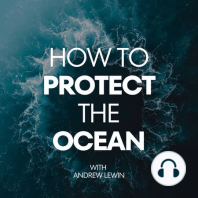16 min listen

SUFB 204: Leading By Example For Marine Conservation
SUFB 204: Leading By Example For Marine Conservation
ratings:
Length:
32 minutes
Released:
Sep 12, 2016
Format:
Podcast episode
Description
Marine Conservation is a very rewarding career and you will recall that I've said this before; however, this is not an easy field in which we work. You will soon find out that the environment is not always the top priority for governments or businesses to act unless it causes severe and consistent economic damage to the point where the cost outweighs the amount of money that someone can gain from it. Combatting this sort of stigma requires protest, which in itself can be done in many ways. Protests have been used to make governments and/or the public aware that a particular group of people, or a person, would like something to change or stop something for changing. Protests can be conducted peacefully and others can be conducted violently. Each type is designed to create awareness and stop something from happening. Sea Shepherd Society protests are done by any means necessary. Their protests are more aggressive than others. Not everyone, including me, agrees with their methods, but they are effective (do an internet search on Japanese Whaling over the past 5 years and you will notice Sea Shepherd is consistently interrupting their catches every year by ramming into whaling boats and getting in their way). Scientists from across Canada marched in Ottawa (the capital) to protest the attempt of the conservative Canadian government to silence its scientists. The march was peaceful and gained national media coverage bringing light to a problem affecting the environment. Not all protests are for the environment. Recently, NFL' San Francisco 49er Quarterback, Colin Kaepernick, sat down during the American National anthem to protest the violence of police against minorities and the lack of action that would reduce and eventually eliminate the issue. Colin got criticized for the method in which he protested as many said that he was disrespecting the flag and the people who fought under the flag to protect his freedom. He was called spoiled, a coward among other things. Some of the media even said that he wasn't "black" enough to realize the issue that was happening and shouldn't be leading the cause in the NFL. However, Colin was leading a movement that would turn into others sitting, kneeling, and interlocking arms as a team. The protest spread across the NFL, one of America's biggest sports, and other sports spanning various ethnicities too. the protest went from criticizing Colin for his actions to many more people discussing the issue he was protesting in the first place. An issue that may not be solved in one day or over many years, but is now being discussed again through Colin's actions. Colin also pledged $1 million dollars to various charities that were working on the issues at hand and other athletes pledged undisclosed amounts in support. One quarterback's actions has led to a conservation continuing and some important work being supported. It started with one person and led to action. In another recent protest, the Standing Rock Sioux Tribe conducted the largest protest in First Nation history to stop the construction of a pipeline north of there land. They were concerned about the contamination of their land and drinking water through future spills that may take place. They sued the Army Corp of Engineers, which was overseeing the construction to stop the action entirely until a proper assessment was conducted and the assessment methods were done properly. First Nations going up against the government is not an easy fight; however, the protest caused a temporary halting of construction until the court decided what to do. The court eventually decided to let the construction happen; however, President Obama gave an executive order to stop all construction until further notice. Do you think the President would have known about this situation had it not been for the protests? I think not. The point of this episode is to begin to lead for Marine Conservation. You don't have to protest for everything, but you don't hav
Released:
Sep 12, 2016
Format:
Podcast episode
Titles in the series (100)
SUFB 052: Toxic Algae Ravaging The Pacific Ocean: Warming oceans are bring more frequent toxic algae blooms to the Pacific delaying the Dungeness crab fishery indefinitely. I talk about other events that were related to toxic algae during the podcast. Shop for the... by How To Protect The Ocean